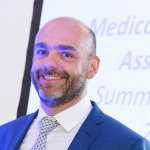 Yesterday my mum, who died of cancer in February 2007, would have been 91. I’m not an expert on death and so do not know whether hers was “good” or not, but I’ll never forget the last six months of her life, when we knew she was dying and had to make the most of having her around.
Yesterday my mum, who died of cancer in February 2007, would have been 91. I’m not an expert on death and so do not know whether hers was “good” or not, but I’ll never forget the last six months of her life, when we knew she was dying and had to make the most of having her around.
Soon after her diagnosis, she began attending the local hospice as a day care patient, and over time its nurses would stay overnight as her condition worsened.
This must have been especially odd for her, as my sister works there as clinical services manager, although she wasn’t involved in her direct care. I wasn’t sure my mum would take to the regime there, but she got to love her hospice days, meeting other patients, making things, and having treatments and therapies.
She even ended up on TV when, six weeks before she died, a film crew turned up with celebrity chef Aldo Zilli, who cooked the patients Christmas lunch. She was unimpressed with the result (too fancy), but was a big fan of the hospice cook and her home cooked lunches.
Why am I telling you this? I suppose it’s because I understood why Richard Smith’s recent “Cancer is the best death” blog post (and its follow-up one) caused the reaction it did, particularly from bereaved patients, and especially from those who have lost a child to cancer.
So it’s good to read the perspective of Mike Smeeton, director of health and social care, from the neurological hospice charity Sue Ryder. Two of its nurses talked about the fallout from Richard’s blog on BBC Radio 4’s Broadcasting House programme.
As Mike says, it’s how you die that’s important, and its research shows that for most people that means being free from pain and discomfort, being surrounded by loved ones, having privacy and dignity, and calm and peace.
I know my mum didn’t have all of those things all of the time, but the team at Treetops Hospice tried to make that the case for as much of the time as possible.
Let’s end with some wonderful news, which is that so far The BMJ’s Christmas appeal for MSF has raised £34 896, more than double our target. This is an amazing achievement. Many thanks to our readers who have made donations, and if you haven’t, and want to, there is still time. Here is the donation page.
David Payne is digital editor, The BMJ, and readers’ editor.